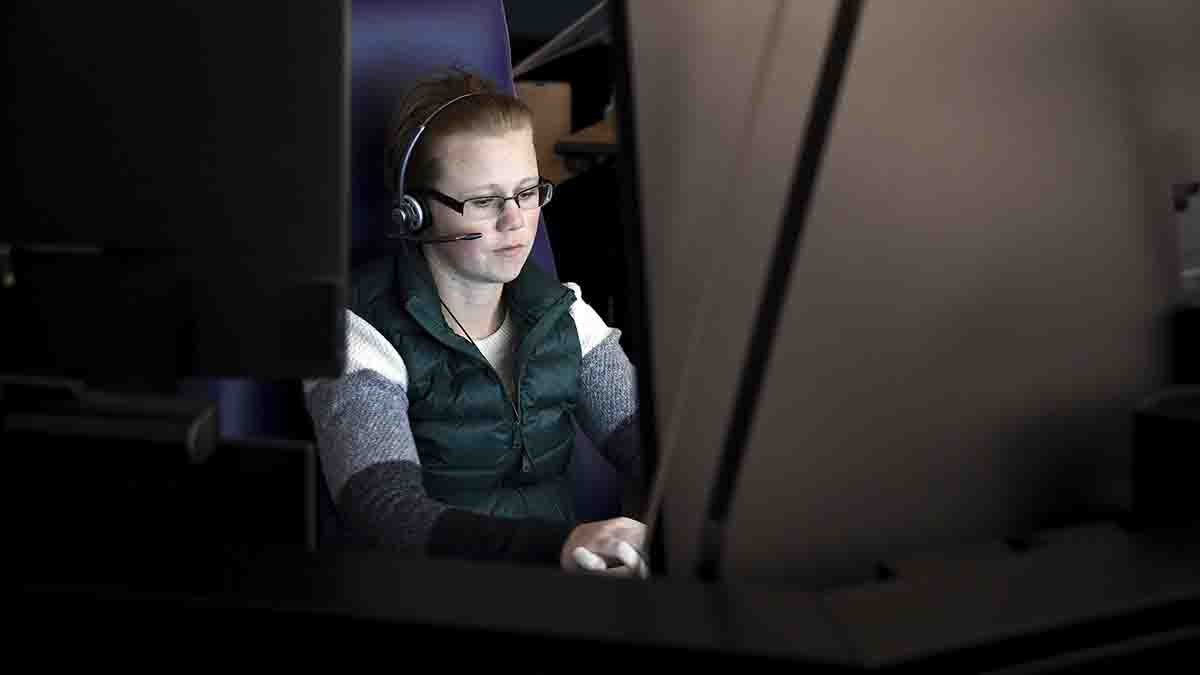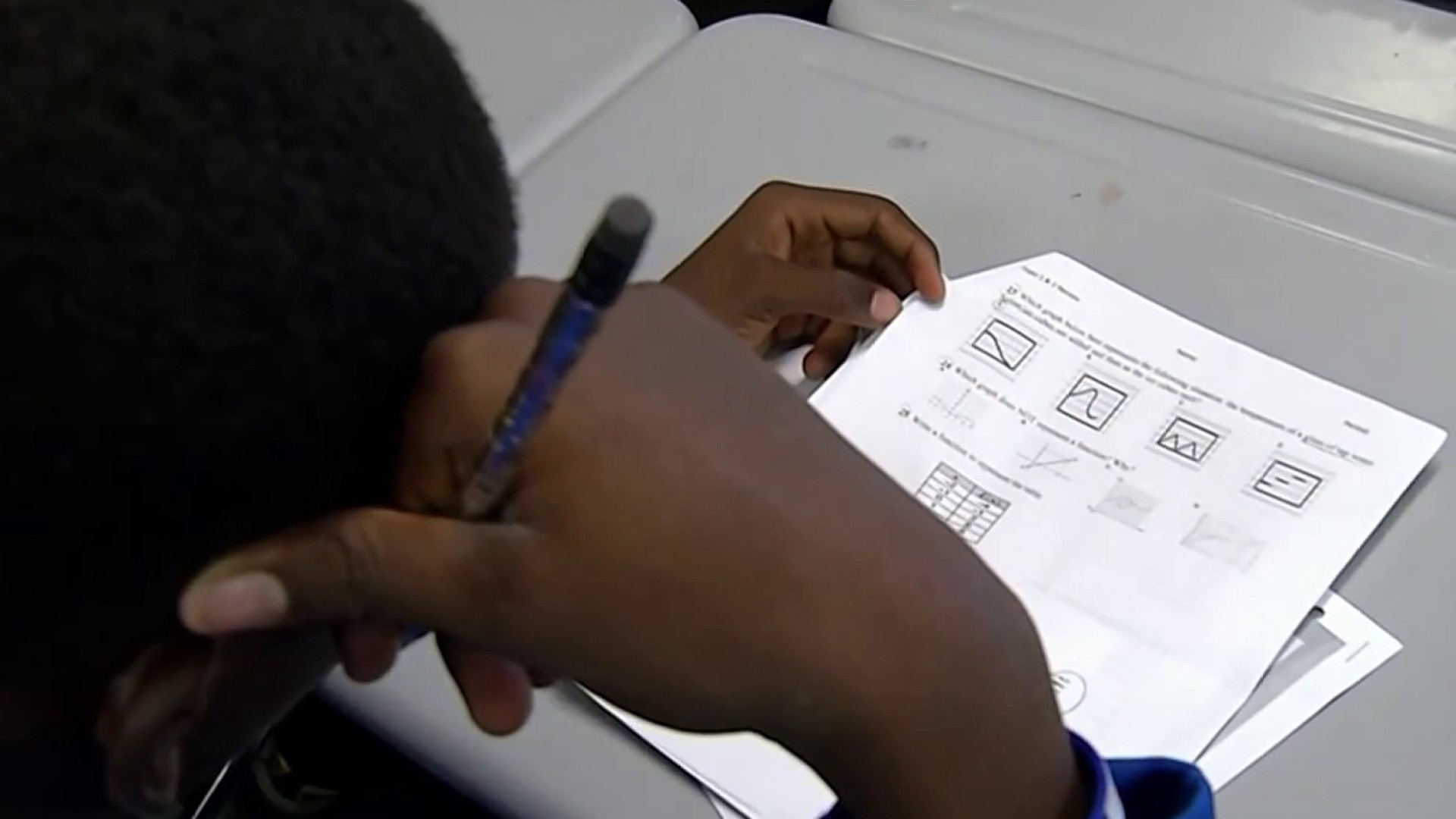Lee la historia en español aquí.
By Thayma Sánchez
At 17 years old, Abdias Funes Marroquin left El Salvador alone. He had $300 in his pocket as he journeyed toward Virginia to meet the mother he last saw as a baby.
He spent a whole month traveling toward the U.S.-Mexico border and then three months in a youth immigration center.
“You feel a little lonely, because you are alone, interacting with other young people or children from other countries,” Marroquin said.
Now 25, he lives by himself in Annandale, Virginia, as he builds a career and dreams of starting a family of his own.
As Latino immigrants sacrifice and strive to make their American dream come true, often living without their families, loneliness can feel inevitable. Here’s a look at immigrants’ mental health challenges and which culturally specific resources are available in the D.C. area.

The mental and physical effects of loneliness
The experience of being an immigrant can take a mental and even physical toll, said psychologist Jose Efrain Rodriguez, who works with immigrants as well as Latinos in their home countries.
“It's the fact that I have gone through so many impacts and met so many people who perhaps have wanted to take advantage of me and the resources that I carry, that I have already exhausted them,” he said.
Immigrants can feel isolated and unable to make decisions and get support. In striving to create a new life in a new country, many people become self-interested and then feel even more alone.
“Individualism is not autonomy. Individualism is that I have interests and I am going to achieve those interests at all costs, and I am not necessarily interested in the wellbeing of others,” Rodriguez said.
Earlier this year, the U.S. surgeon general declared widespread loneliness a public health epidemic as dangerous as smoking a dozen cigarettes a day.
“We now know that loneliness is a common feeling that many people experience. It’s like hunger or thirst. It’s a feeling the body sends us when something we need for survival is missing,” Surgeon General Vivek Murthy told the Associated Press.
Loneliness can lead to health problems including headaches, insomnia, heart trouble and digestive issues, Rodriguez added.
For immigrants who have survived significant trauma, such as passing through the jungle of the Darién Gap, the effects can be as profound as a concussion.
“There is a psychological effect. Literally on a neurological level, it is as if we received an impact. An example of this is, think of a forceful blow to the head that leaves you unconscious,” Rodriguez said.
We live alone in this country. Many of us don't have family. It’s not bad to ask for help. There are many organizations that can support us — we just have to allow them.
Xóchitl López, mental health ambassador for Baltimore's Centro Sol
‘It’s not bad to ask for help’
As immigrants struggle with mental and physical fatigue and the effects of traumatic situations, a number of resources are available in the D.C. area.
Xóchitl López helps immigrants meet their mental health needs after she needed help herself. The Radiante program at the Baltimore organization Centro Sol assisted her after she arrived from Mexico and suffered an illness.
“Because I had been very sick, I had not realized that I was falling into depression," she said. “When I was halfway through Radiante, it was as if the lights in the house began to turn on, and it was as if I began to see that there were flowers and other things. Then I realized that something was changing.”
López now serves as a mental health ambassador for Centro Sol, aiming to connect Latinos with available resources.
“We live alone in this country,” she said. “Many of us don't have family. It’s not bad to ask for help. There are many organizations that can support us — we just have to allow them.”
Several other organizations in the D.C. area offer services to immigrants. In D.C., the Latin American Youth Center has a number of mental health services, including those for young people age 8 to 21.
“Along with mental therapy, we offer behavioral and trauma-focused therapy that focuses more on the individual," Yesenia Molina of the center’s social services team said. "We offer group and family therapy as needed."
Services also include a life skills program, a substance abuse program for youth, psychiatric evaluations and medication management.
Through a partnership with MoCo Reconnect, services also are available in Montgomery County and Prince George’s County.
‘Seeing yourself with dignity’
Rodriguez, the psychologist, advised immigrants to work through trauma and feelings of loneliness so they can move forward with their lives.
“There are times when the adaptation cannot be processed, because I have resources that I managed to obtain, but I did not work through the trauma, and then there is a compound trauma,” he said.
“I have to see you as a human being, as a person with a need that has a life that has needs that I have to handle … that is seeing yourself with dignity,” he added.
López, who works with immigrants in Baltimore, spoke about challenging stigmas against mental health care.
“You feel bad, but you don't know what's going on with you. We don't give ourselves permission for it to be mental health," she said. "It is important that people know that they need to ask for help and that there is someone to help us.”
‘Don’t stop dreaming’
Marroquin, the immigrant whose journey from El Salvador ended in Annandale, said he hasn’t tried mental health services yet.
“In our countries, that is sometimes not seen as very necessary,” he said.
But he attends a church where many other immigrants go.
He advised other newcomers to the U.S. to rely on their faith and their visions of a better life.
“Don't stop dreaming, and put your trust in God,” he said. “He is the one who takes care of us, and if it is his will, everything is possible.”




